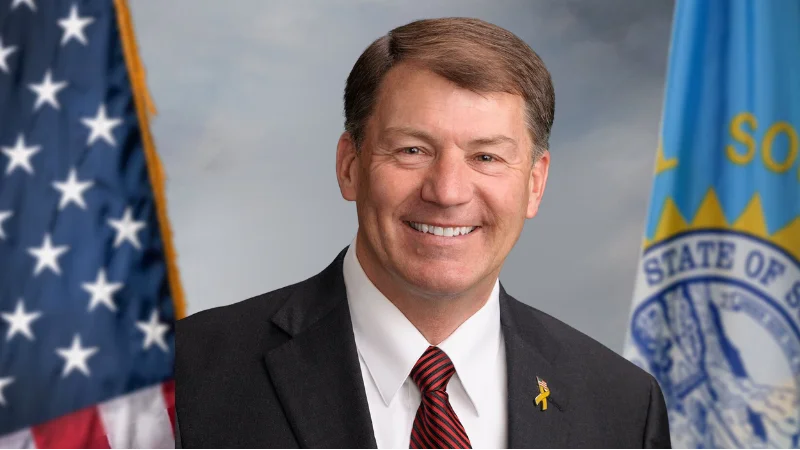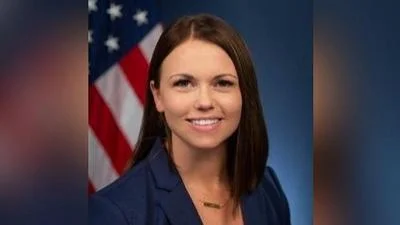Senator Mike Rounds, US Senator for South Dakota | Official U.S. Senate headshot
Senator Mike Rounds, US Senator for South Dakota | Official U.S. Senate headshot
U.S. Senator Mike Rounds (R-S.D.), chairman of the Senate Banking, Housing, and Urban Affairs Committee’s Subcommittee on Securities, Insurance, and Investments, delivered opening remarks at a hearing titled “Guardrails and Growth: AI’s Role in Capital and Insurance Markets.” This marks the first subcommittee hearing of the 119th Congress and Rounds’ first as chairman.
The hearing focused on the impact of artificial intelligence (AI) on financial services and how Congress can encourage innovation while ensuring transparency and accountability. Witnesses included Kevin Kalinich from Aon, Tal Cohen from NASDAQ, and Dr. David Cox from IBM Research.
“We need regulatory frameworks that both support innovation and protect consumers,” said Rounds. “As AI continues to evolve, regulators also have an opportunity to modernize their own operations. AI can help agencies conduct smarter supervision, reduce unnecessary burdens on smaller institutions, and focus resources where they’re most needed. There’s a real opportunity for public-private collaboration in this space, and I hope today’s hearing helps us think more clearly about how to make that happen.”
Rounds began his remarks by thanking Ranking Member Warner for his partnership in the subcommittee as well as on other initiatives. He also thanked the bipartisan witness panel for contributing their expertise to the discussion.
The senator highlighted that AI is already having a significant effect across the financial system. In capital markets, firms use AI to analyze large volumes of data quickly to guide investment decisions, execute trades efficiently, and reduce costs. Asset managers employ AI to spot risks or opportunities that traditional tools may overlook. Exchanges integrate AI into market surveillance systems for detecting manipulation and protecting market integrity.
In insurance markets, companies are using machine learning to assess risk profiles based on claims histories, industry benchmarks, and operational data. These advances help insurers price policies more accurately and expand coverage options.
However, Rounds noted challenges remain with underwriting policies for businesses using AI due to limited understanding within the insurance market about generative technologies. He suggested more clarity could come from Congressional action or through organizations such as the National Institute of Standards and Technology (NIST).
Fraud prevention is another area where AI has shown results. According to Rounds' statement citing Card Policy Council data, one major credit card network’s AI-driven security enhancements increased fraud detection rates by up to 300% over three years and prevented over $50 billion in fraud; another network blocked over $40 billion in attempted fraudulent transactions. Citing McKinsey research, he added that AI systems can cut fraud detection costs by 30% while improving accuracy.
Rounds announced he is reintroducing the Unleashing AI Innovation in Financial Services Act alongside Senators Heinrich, Kim, Tillis, and House Financial Services Chairman French Hill. The bill would create a venue for financial institutions and regulators to collaborate on testing new AI projects before full deployment.
He also addressed past regulatory proposals he considered problematic: “Last Congress, former SEC Chair Gary Gensler proposed the Predictive Data Analytics Rule which, I believe, would have imposed sweeping, unclear restrictions on financial firms developing or deploying AI, without a workable framework.”
“That rule would have slowed innovation, raised compliance costs, and locked out smaller players,” Rounds said. He credited himself and Ranking Member Warner with leading opposition against it.
Rounds closed by reiterating his call for regulatory frameworks that balance support for innovation with consumer protection: “As AI continues to evolve...AI can help agencies conduct smarter supervision...There’s a real opportunity for public-private collaboration in this space...I hope today’s hearing helps us think more clearly about how to make that happen.”
He then turned proceedings over to Ranking Member Warner for further remarks.




 Alerts Sign-up
Alerts Sign-up